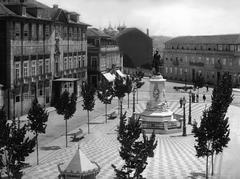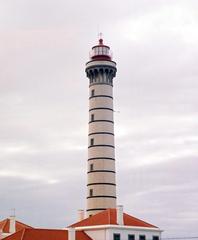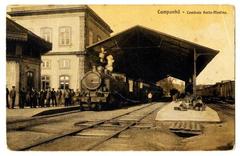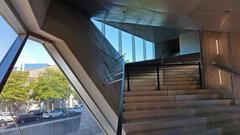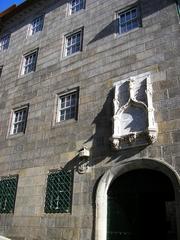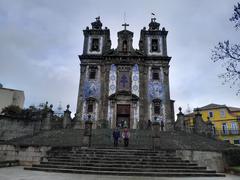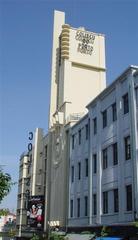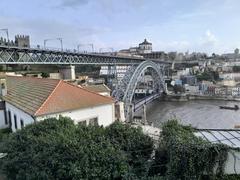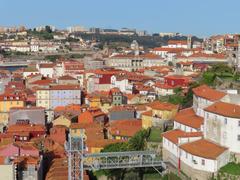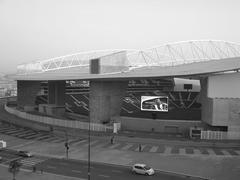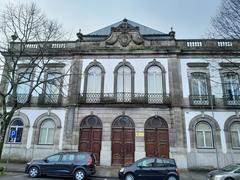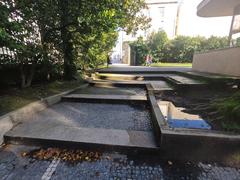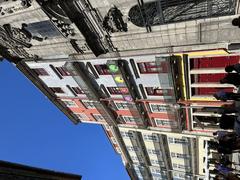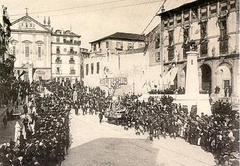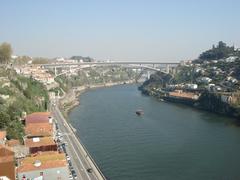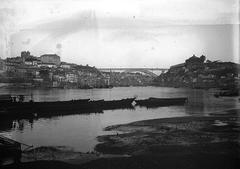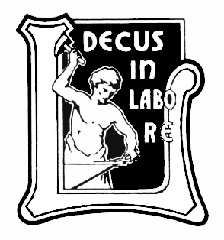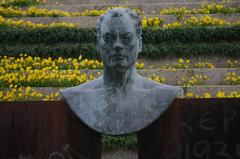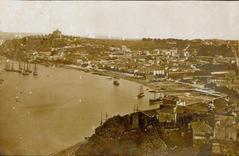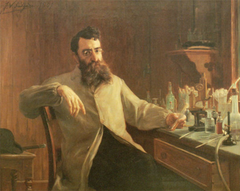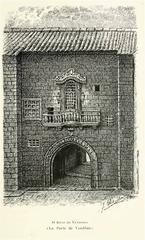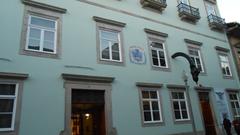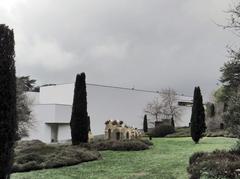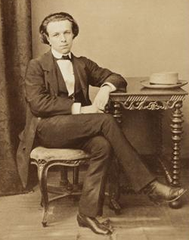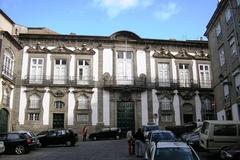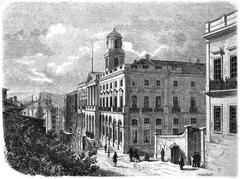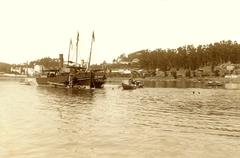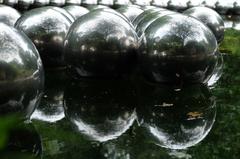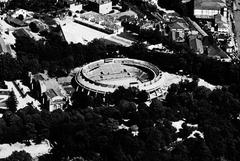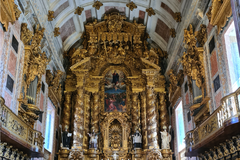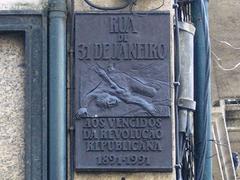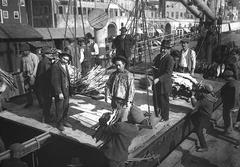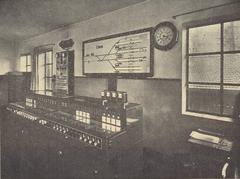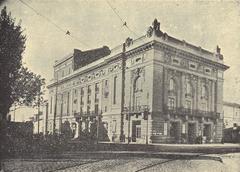
University of Porto Visiting Hours, Tickets, and Historical Sites in Porto, Portugal
Date: 03/07/2025
Introduction
The University of Porto (U.Porto) is a distinguished academic institution nestled within the vibrant cityscape of Porto, Portugal. Not only does it stand as the country’s leading university, but it is also a living testament to centuries of educational, scientific, and cultural advancement. With roots tracing back to the 18th century and official foundation in 1911, U.Porto has become synonymous with academic excellence and architectural grandeur, seamlessly integrated into Porto’s UNESCO World Heritage-listed historic center.
This guide offers practical and detailed information for anyone planning a visit to the University of Porto. You’ll find essential details on visiting hours, ticketing, accessibility, guided tours, and the university’s rich historical and cultural significance. Additionally, discover key nearby attractions, travel tips, and how U.Porto’s global reputation and local engagement make it a must-visit destination for travelers, scholars, and culture enthusiasts alike.
For the latest visitor information, including event schedules, ticketing options, and accessibility services, always consult the official University of Porto website, as well as resources like the Museum of Natural History and Science, Faculty of Engineering, and Botanical Garden.
Quick Contents
- Academic and Scientific Leadership
- Historical and Cultural Significance
- Visiting Hours, Tickets, and Accessibility
- Guided Tours and Visitor Experience
- Special Events and Exhibitions
- Nearby Attractions and Travel Tips
- Economic and Urban Impact
- Internationalization and Global Reputation
- Heritage, Innovation, and Visual Media
- FAQ
- Conclusion and Recommendations
Academic and Scientific Leadership
U.Porto stands at the forefront of Portuguese higher education and research. It consistently leads national rankings and boasts a significant share of the country’s scientific output, with 48 research units and a highly qualified academic community. In the most recent FCT evaluation, 91% of its R&D units received “Excellent” or “Very Good” ratings (U.Porto Official Portal). The university is a magnet for international talent and a center for groundbreaking research, innovation, and global collaboration (U.Porto Research).
Historical and Cultural Significance
The University of Porto’s history is deeply interwoven with Portugal’s own evolution. While officially founded in 1911, its origins stem from the Nautical Academy (1762) and Royal Academy of Sciences (1836). These institutions later merged into the Polytechnic Academy, setting the stage for U.Porto’s establishment as a modern research university (U.Porto History). Its historical buildings, such as the neoclassical Rectorate at Praça Gomes Teixeira, are not only academic landmarks but major attractions for those interested in Porto’s cultural and architectural heritage (ISHPSB Conference).
Visiting Hours, Tickets, and Accessibility
Main Sites and Typical Hours
- Rectorate Building (Praça Gomes Teixeira): Tuesday to Sunday, 10:00–18:00. Entry is often free except during special exhibitions or guided tours, which may require tickets (U.Porto Rectorate website).
- Museum of Natural History and Science: Tuesday to Sunday, 10:00–18:00. Free entry for permanent exhibitions; some activities and special exhibitions may have a nominal fee (Museum of Natural History).
- Botanical Garden: Tuesday to Sunday, 9:00–19:00. Free admission (Botanical Garden).
- Faculty of Engineering (FEUP): Open weekdays, 8:00–20:00. Public access is generally free, except during private events (FEUP).
- Faculty of Fine Arts (FBAUP): Weekdays, 10:00–18:00, dependent on event schedules (FBAUP website).
Note: Hours may vary during holidays or special university events. Always check the latest information on official websites.
Ticketing
- Rectorate Tours: ~€5 per person.
- Museum of Natural History and Science: €3 general admission; discounts for students, seniors, and Porto Card holders.
- Botanical Garden: Free entry.
- Guided Tours: Booking recommended, especially in peak seasons. Some tours or exhibitions may require separate tickets.
Accessibility
U.Porto prioritizes accessibility, with ramps, elevators, and adapted restrooms in most modern buildings. Some historic sites may present challenges—contact visitor services in advance for details or assistance.
Guided Tours and Visitor Experience
U.Porto offers guided tours in Portuguese and English, providing unique insights into its history, architecture, and academic achievements. Tours of the Rectorate, museums, and botanical gardens are particularly popular, and educational workshops are available for families and school groups. Virtual tours are also available for remote visitors (U.Porto Virtual Tours).
- Advance booking is recommended, especially during school holidays, festivals, and conference periods.
Special Events and Exhibitions
The university hosts a diverse calendar of cultural and scientific events. These include:
- Temporary exhibitions at the Museum of Natural History and Science.
- International conferences like the AB2025 Conference and APDR Congress 2025.
- Public lectures, festivals, and the colorful “Queima das Fitas” graduation celebration in May.
Check event schedules on the university’s and faculty websites for details on public access and registration requirements.
Nearby Attractions and Travel Tips
Top Nearby Landmarks
- Clérigos Tower: Baroque bell tower with panoramic city views (Porto’s Top 10 Attractions).
- Livraria Lello: Famed for its ornate interiors and literary history.
- Ribeira District: UNESCO World Heritage riverside neighborhood.
- São Bento Station: Renowned for its azulejo tile panels.
Visitor Tips
- Transport: Use the metro (Aliados or Trindade stations) or buses; parking is limited in the historic center.
- Walking: Wear comfortable shoes and prepare for hilly streets.
- Weather: Porto’s weather can be unpredictable—bring a rain jacket or umbrella.
- Photography: Allowed in public areas, but flash and tripods may be restricted. Always check signage.
- Best time to visit: Spring and autumn for mild weather and fewer crowds.
- Porto Card: Offers discounts on transport and attractions.
Economic and Urban Impact
U.Porto is one of the city’s largest employers and a significant driver of Porto’s urban development. Its partnerships with local businesses and international institutions foster innovation and enhance the city’s reputation as a knowledge and technology hub (EduRank Porto).
Internationalization and Global Reputation
Internationally, U.Porto is consistently ranked among the world’s top universities, highlighted by its position in the Times Higher Education and QS World University Rankings (U.Porto Rankings). Its global partnerships, exchange programs, and hosting of major conferences make it a multicultural academic environment welcoming visitors from around the world.
Heritage, Innovation, and Visual Media
The university’s official website offers extensive visual resources, including high-resolution photos, videos, and interactive maps to help visitors plan their journeys. Alt-tagged images and accessible media ensure that all visitors can enjoy the university’s heritage and innovations.
Frequently Asked Questions (FAQ)
Q: What are the University of Porto visiting hours?
A: Most sites are open Tuesday to Sunday, 10:00–18:00; the Botanical Garden opens daily from 9:00 to 19:00. Check official sites for updates.
Q: Do I need tickets to visit the University of Porto or its museums?
A: Many sites are free; some tours or special exhibitions may require paid tickets.
Q: Are guided tours available?
A: Yes, in Portuguese and English. Book in advance for the best availability.
Q: Is the university accessible for people with disabilities?
A: Yes, with ramps and adapted facilities in modern buildings. Contact visitor services for further assistance.
Q: Can I take photographs?
A: Yes, in most public areas, but restrictions may apply in exhibitions and ceremonial spaces.
Conclusion and Recommendations
Visiting the University of Porto offers a unique and multifaceted experience, blending academic prestige, historical depth, and vibrant urban culture. From the neoclassical Rectorate and tranquil Botanical Garden to the cutting-edge research centers and engaging museums, U.Porto is both a gateway to Porto’s intellectual heritage and a living part of its daily life.
Maximize your visit by aligning it with the university’s calendar of events and exploring nearby historic sites. Use public transport, plan ahead for peak periods, and consult official resources like the University of Porto portal for the most current information. Consider downloading travel aids such as the Audiala app for personalized guidance and audio tours.
Whether you are a history buff, a prospective student, or a curious traveler, a visit to the University of Porto promises education, inspiration, and connection to one of Europe’s most dynamic cities.
References
- University of Porto Official Portal, 2025, University of Porto (https://www.up.pt/portal/en/)
- U.Porto History, 2025, University of Porto (https://www.up.pt/portal/en/explore/about-uporto/history/)
- ISHPSB Conference, 2025, International Society for the History, Philosophy, and Social Studies of Biology (https://www.ishpssb.org/meetings)
- U.Porto Research, 2025, University of Porto (https://www.up.pt/portal/en/)
- FEUP – Faculty of Engineering, 2025, University of Porto (https://www.fe.up.pt/)
- Museum of Natural History and Science, 2025, University of Porto (https://mhnc.up.pt/)
- Botanical Garden, 2025, University of Porto (https://sigarra.up.pt/fcup/en/web_page.inicial)
- APDR Congress 2025, 2025, Portuguese Association for Damage Mechanics (https://www.apdr.pt/congresso/2025/)
- AB2025 Conference, 2025, University of Porto (https://www.fe.up.pt/abconference/2025/)
- EduRank Porto, 2025, EduRank (https://edurank.org/geo/porto/)
- Porto UNESCO World Heritage, 2025, Porto Tourism (https://porto.travel/things-to-do-see/)
- Porto City Tourism Portal, 2025, Visit Porto (https://visitporto.travel/)









